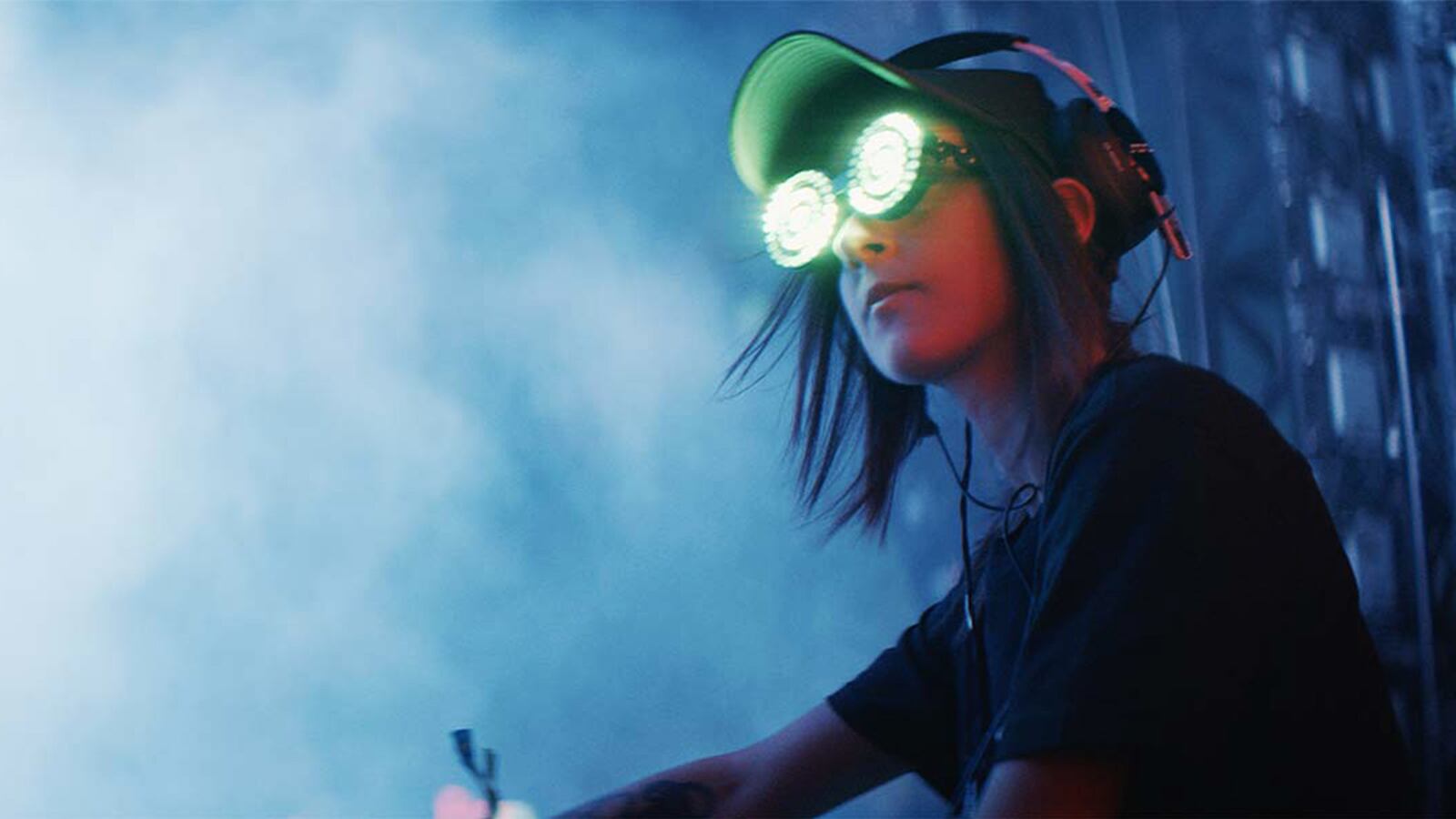When Jennifer Lee, better known as TOKiMONSTA, started DJing, there was one thing she heard whispered about her again and again: that she hadn’t created her own music. She remembers people attributing her work to the men in her life, guessing that her boyfriend must’ve made it for her. Since then, she has prioritized transparency in her process. “The more I share that with people,” she says, “the more they know that what I make is mine.”
Seizing ownership over one’s work and artistry is a theme that comes up repeatedly in Underplayed, Stacey Lee’s thoughtful and thorough documentary probing gender inequality in the electronic music scene. Profiling a series of DJs and music producers, the film presents a broad and commanding look at the EDM landscape. It starts with a bleak statistic: On Billboard’s top 100 DJ list in 2019, only five women made the cut. The film then proceeds to interview each one of them—along with a host of other, more up-and-coming or underground female talents—about their experiences.
The documentary opens on Suzanne Ciani, a pioneer in electronic music whose career began in the 1970s. For women in the industry at that time, she says, “There were lots of signals that you weren’t quite OK.” When Ciani went to work with Don Buchla, creator of the Buchla synthesizer, she remembers him disinviting her from a class he’d sponsored, saying that he’d decided not to include women. Men in the field found women to be “a social discomfort,” she explains. “They just were used to being among themselves. And they wanted it to stay that way.”
Though Ciani’s anecdote is decades old, feeling ostracized and alone is an experience that many of the subjects of Underplayed share. Though Lee conducted each interview individually, there’s a powerful echo effect among them. So many of the artists had to develop an armor against online vitriol. So many have had to fight off feelings of inadequacy. So many have worked through depression and anxiety.
One subject we hear from often is Isabelle Rezazadeh, who uses the stage name Rezz. On the 2019 Billboard list, Rezz ranked number 39. A self-taught artist, Rezz was making beats in her parents’ basement, envisioning and striving toward her success, when she started playing shows and making a name for herself. Now, she’s a frequent headliner.
But throughout Rezz’s rise, she was surrounded by men. “I’ve never really had a female idol,” she says, over footage of her greeting a series of women at a meet-up for a fan group called Cult of Rezz. “The fact that I can be a female idol to these girls is amazing.”
Part of the mission of documentaries like Underplayed, which tackle sexism in a specific industry—Amy Adrion’s wonderful Half the Picture comes to mind—is to not only posit inequity as a prevalent issue, but also to offer potential solutions. Mentorship is one of them. In an industry that has historically failed to make space for female artists, creating safe spaces where women can feel seen and heard is crucial.
Underplayed highlights several such spaces, including producer-girls and Women’s Audio Mission (WAM), educational programs that provide hands-on music production training for women and girls. As the documentary makes clear, women aren’t typically socialized to be comfortable with technology. From a young age, gadgets are marketed toward boys, with girls not receiving the same type of early exposure. For Terri Winston, the founder of WAM, programs like hers represent a kind of salve.
Throughout, Lee intercuts the interviews with footage of the artists doggedly at work—both on stage and in the studio. In doing so, the documentary itself performs a service: It isn’t just drawing attention to the gender gap, it’s an active part of giving a new generation of artists the idols that Rezz lacked.
The film is also admirably clear in identifying and paying homage to the origins of techno. Early on in the documentary, an artist named Tygapaw meets with collaborators to write a modern vogue song. “If you’ve never had to act like somebody else for your own safety or for your own comfort, you could never understand what it’s like to let yourself go to the beat,” says Robot MoonJuice, a songwriter and creative director, over archival footage of people voguing.
It’s infuriating—and persuasive—to watch the documentary pivot from the Black and Hispanic queer communities where techno was born to the industry as it stands now, overwhelmingly dominated by white male creators.
Separate from its content, the film’s form is electric. Synth or dance music overlay many sequences, making even downbeat moments pulse with energy. And the festival performance scenes—where the doc intercuts sweeping crowd shots with onstage close-ups—are as invigorating as any you’d find in a concert film.
In one of the most memorable moments in the documentary, TOKiMONSTA talks about battling imposter syndrome after being nominated for a Grammy. “You can’t help when those thoughts come in,” she says, “and you have to recognize the way to change it so that when the next girl comes in, and she wins, she’s like, ‘This is all me.’”


